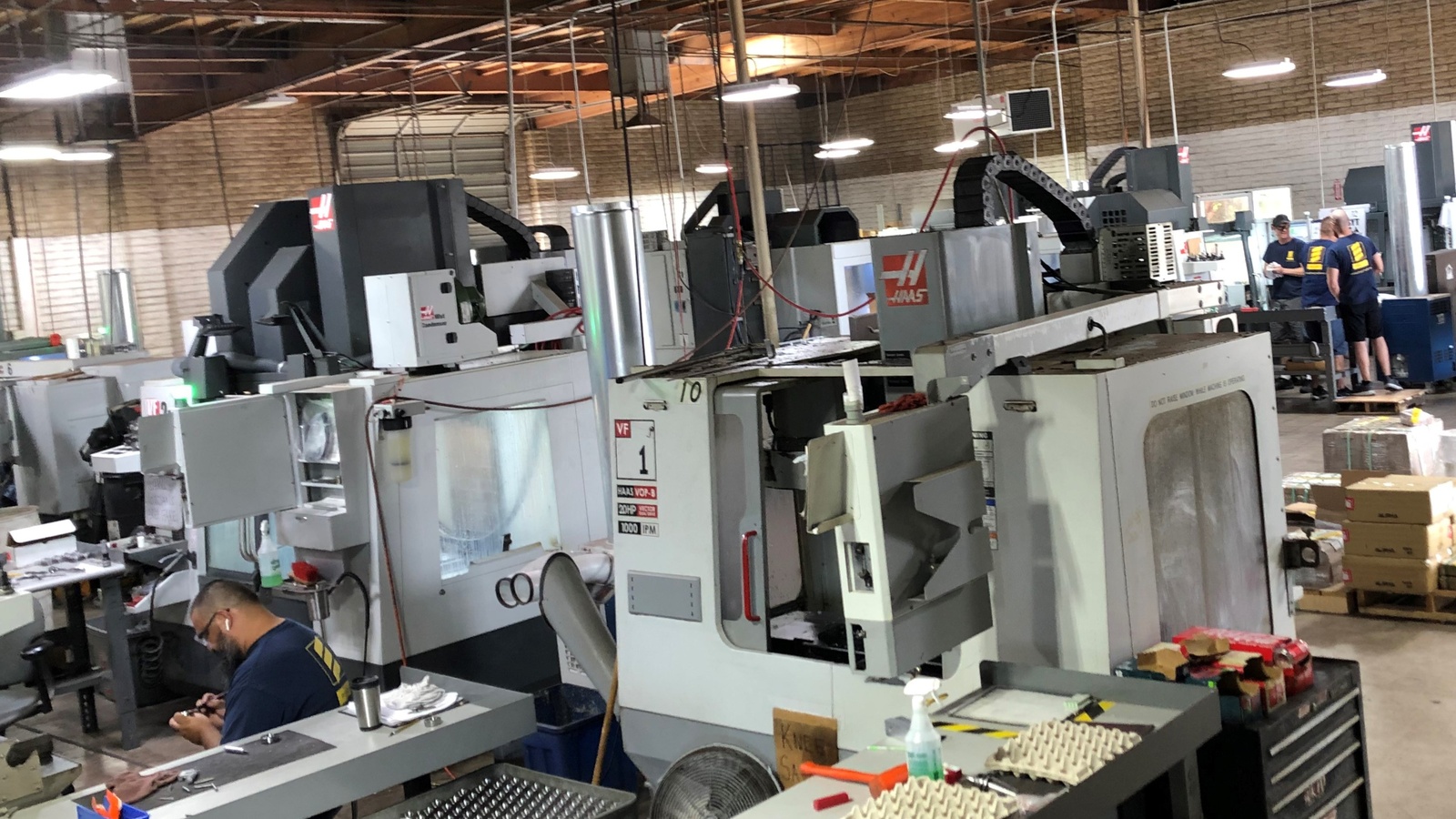“A Win-Win-Win”: How Tax Reform Transformed Pivot Manufacturing

Today, Pivot Manufacturing is a far cry from the shop it was just five years ago.
Starting small: “For the first 15 or so years of our existence, we were a company that did small-run prototypes, R&D work,” said company co-owner Steve Macias of his Phoenix machining and mechanical assembly services firm, which he started in 2000 with longtime friend Jack Cuddihy.
- “We wanted to get into production because that’s how you grow a company in this industry,” said Macias. “But our equipment didn’t lend itself to that work, and we couldn’t [afford new equipment].”
The transformation: That all changed in 2017 with the passage of tax reform legislation. “We had already started thinking, ‘We’re going to have to change something.’ We didn’t want to be a little R&D shop forever,” Macias recalled.
- Thanks in great part to full expensing—a key pro-growth incentive in the new law that reduces after-tax costs by providing a 100% deduction for machinery purchases—Pivot was able to invest in the new equipment it needed to take on the more lucrative production orders.
- “It really has been transformative,” Macias said of the 2017 legislation.
Five years on: For the past five years, the bulk of Pivot’s work has been with government contractors, including Raytheon and General Dynamics. These days, the average age of the manufacturer’s machines is 2.5 years; before tax reform, that number was 14.
- “We were able to sell our old equipment, buy new high-speed CNC mills and start bidding jobs—and we got them,” Macias said. “Every year since, we’ve bought two or three machines. Our accountant was telling us, ‘If you guys can [keep] filling these machines up, keep doing it.’”
Growth mode: Pivot’s exceptional growth has enabled it to raise wages and increase benefits. The manufacturer pays its machinists above the going rate, Macias said, and offers its employees medical, dental and vision coverage in addition to a matching 401(k) program.
- The shop has added talent since 2017, too, growing from around a dozen employees to 19 today.
- In addition, the growth has enabled the firm to give back to the community. “Before [tax reform], we might write a couple of $500 checks,” Macias said. “Last year, we probably donated $10,000…to seven or eight charitable groups.”
What’s next: Pivot has been so successful in recent years that Macias and Cuddihy are in talks to purchase the building that houses their facility so they can expand even further.
- The purchase could enable the company, which is already on track in 2022 to double its 2016 numbers, to more than double its current revenue.
The final say: “Tax reform was a catalyst,” Macias said. “Before, we knew what we had to do, but the law was what pushed us … to take a leap of faith. It’s been a win-win-win.”
